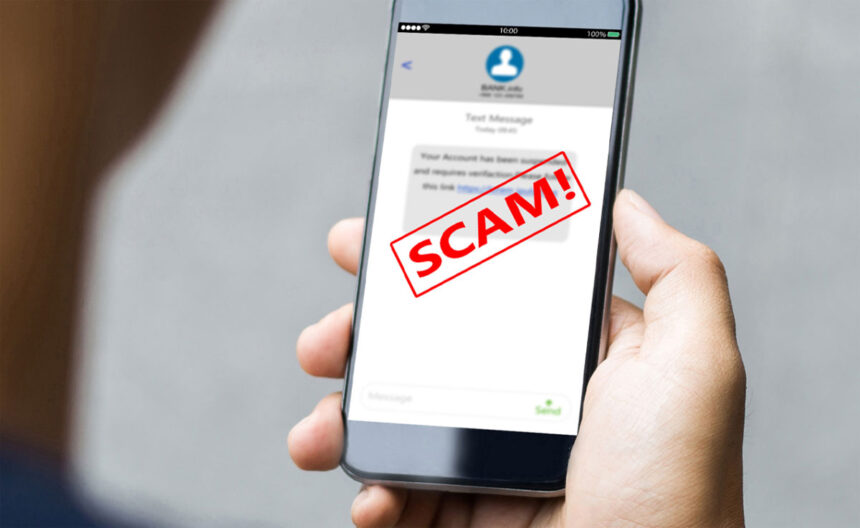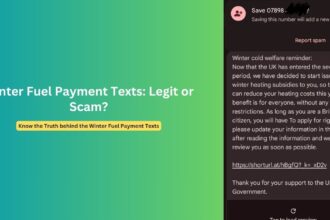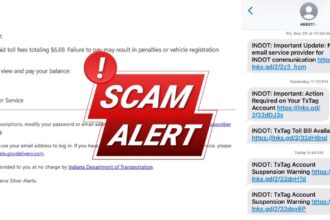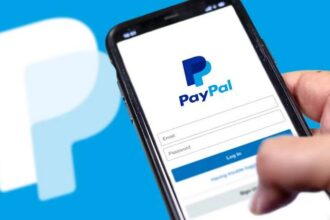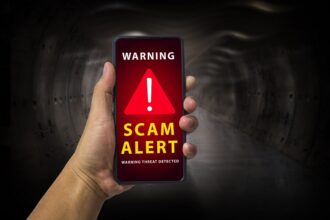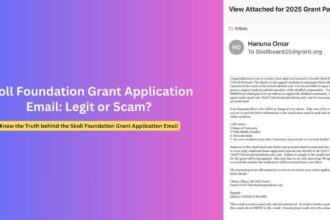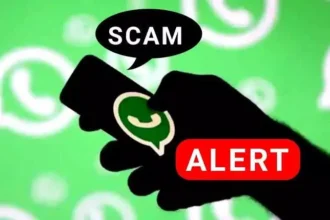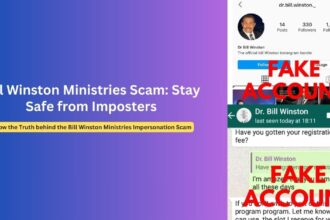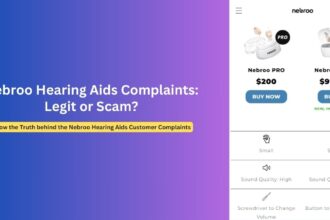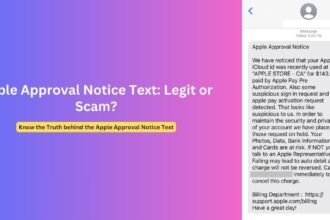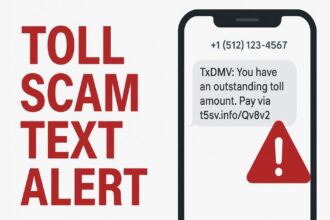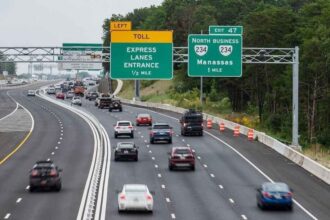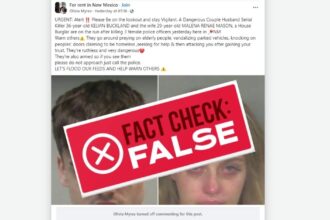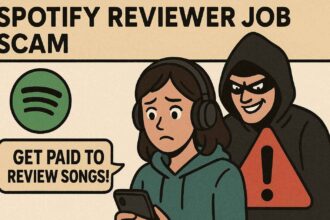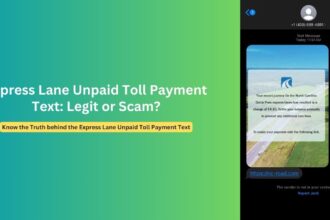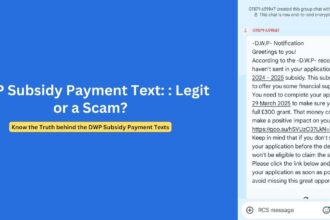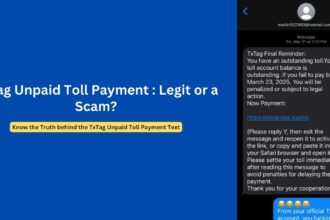Kansas residents are increasingly being targeted by sophisticated text message scams claiming to be from the Kansas Department of Transportation (KDOT). These fraudulent messages demand payment for supposed “unpaid tolls” and threaten legal action if recipients don’t comply immediately. The scam has become so widespread that KDOT has issued official warnings across multiple platforms, alerting residents that these messages are not legitimate and should be ignored.
What makes these scams particularly obvious in Kansas? KDOT does not collect tolls for any roadway.
Official Warnings from Kansas Department of Transportation
The Kansas Department of Transportation has issued formal warnings about these fraudulent text messages across multiple communication channels. In a news release posted on May 12, 2025, KDOT explicitly stated: “The Kansas Department of Transportation is warning the public about a new scam involving fraudulent text messages – known as smishing – that falsely claim to be from KDOT and demand payment for unpaid tolls. KDOT does not collect tolls for any roadway and does not request or collect payment via text message.”
This warning has been amplified through KDOT’s social media accounts, including Facebook and Instagram, where the agency has shared images of example scam texts to help the public identify fraudulent messages. The North Central Kansas branch of KDOT emphasized in their warning: “SCAM ALERT! If you receive a text message like the one in the graphic DO NOT CLICK THE LINK! This is not a valid KDOT website and doing so will put your data at risk.”
These official warnings align with a nationwide trend of similar scams targeting residents in multiple states. Transportation authorities in Michigan, Kentucky, North Carolina, South Carolina, and other states have issued similar alerts about toll-related text scams in recent months, indicating this is part of a coordinated nationwide phishing campaign.
Overview of the KSDOT.GOV Toll Scam
The KSDOT toll violation scam is a sophisticated phishing attempt designed to steal personal and financial information from unsuspecting victims. Scammers send text messages claiming to be from the Kansas Department of Transportation about unpaid toll violations, often using official-looking branding such as “KSDOT” and fake government website links that appear legitimate at first glance.
These messages create a sense of urgency and fear through threats of legal action, penalties, and other serious consequences if payment isn’t made immediately. The goal is to manipulate recipients into clicking malicious links and providing sensitive information, including credit card details and personal identification.
What makes the Kansas version of this scam particularly obvious is that KDOT does not operate or collect tolls for any roadway in Kansas. The Kansas Turnpike Authority (KTA), a separate entity, manages the state’s toll roads. However, even the KTA does not initiate toll collection through unsolicited text messages, instead using official mail and established accounts for toll collection.
This scam is part of a broader pattern of toll-related text scams that have been spreading across the country, with scammers simply adapting their messages to target different states while using the same basic tactics and templates.
How the Scam Works
The KSDOT toll scam follows a calculated pattern designed to create urgency and fear while harvesting sensitive information:
- Initial Contact: Victims receive an unsolicited text message claiming to be from “KSDOT” about unpaid toll violations. The message may appear to come from a regular phone number or an international number, often from the Philippines (+63 country code).
- False Urgency: The message creates immediate stress by using phrases like “final reminder” and threatening penalties or legal action if payment isn’t made by a specific date, typically within a few days.
- Deceptive Links: The text includes a link that appears to be from an official government website but actually directs to a fraudulent site. These domains often use variations like “ksdot.gov-ticketnnj.xin” that start with the legitimate government domain but add suspicious extensions.
- Unusual Instructions: Many versions ask recipients to reply “Y” and perform specific actions like exiting and reopening their messaging app to “activate” the link, which serves both to confirm that the phone number belongs to an active user and to add an element of legitimacy to an otherwise suspicious request.
- Fake Government Website: If a victim clicks the link, they’re directed to a website designed to look like an official government payment portal. These sites can be surprisingly sophisticated, mimicking the design elements of legitimate government websites.
- Data Theft: The fake website captures any information entered, including names, addresses, phone numbers, email addresses, and most critically, credit card details. This information can then be used for immediate fraudulent charges or sold for identity theft purposes.
Security experts note that these scams aren’t just about stealing one-time payments. In some cases, the stolen credit card information is used to add cards to mobile wallets on stolen devices, enabling more extensive fraud. Other victims report multiple unauthorized charges appearing shortly after entering their information on these fraudulent sites.
Fake Text Patterns: Identifying the Fraudulent KSDOT Messages
The fraudulent toll texts follow recognizable patterns. Below are several examples of KSDOT scam messages that Kansas residents have reported:
Example 1: Final Reminder Pattern
KSDOT Final Reminder: You have an outstanding toll. Your toll account balance is outstanding. If you fail to pay by March 13, 2025, you will face penalties or legal action. Now Payment: [Suspicious Link] (Please reply Y, then exit the SMS and open it again to activate the link, or copy the link to your Safari browser and open it) Please settle your toll immediately after reading this message to avoid penalties for delaying the payment. Thank you for your cooperation.
Example 2: Immediate Action Required Pattern
Immediate Action Required – KSDOT Toll Delinquency: This is your final warning. Your toll remains unpaid. If not paid by April 30, 2025, enforcement will proceed without further notice. You may face: Immediate suspension of your vehicle registration, Court judgment and legal collection, Damage to your credit score and driving record. Payment Link: [Suspicious Link] Resolve it now to avoid irreversible penalties.
Example 3: Notice of Violation Pattern
KSDOT Notice of Violation #KS78942: Your vehicle has been photographed failing to pay required toll on Kansas Turnpike. Balance Due: $12.45. Payment Deadline: 04/25/2025. Pay online to avoid additional penalties: [Suspicious Link] or reply INFO for more details.
Example 4: Account Suspension Warning Pattern
ALERT: Your KS-TAG account is scheduled for suspension due to unpaid tolls. Amount due: $8.74. To prevent suspension and additional fees, pay now: [Suspicious Link]. Respond PAY to confirm receipt of this message.
Common Elements in KS DOT Scam Texts:
- Official-Sounding Acronym: Uses “KSDOT” to appear legitimate
- Urgent Language: Terms like “Final Reminder” and threats of “penalties or legal action”
- Vague Information: Mentions “outstanding toll” without specifics about when or where the supposed violation occurred
- Specific Deadline: Usually gives a date a few days or weeks in the future
- Unusual Technical Instructions: Requests to reply “Y” and exit/reopen messages to “activate” links
- Suspicious Links: URLs that contain “ksdot.gov” followed by hyphens and random text
Red Flags in the Link and Website:
- Modified Government Domains: Starts with legitimate-looking “ksdot.gov” but adds suspicious elements
- Unusual Extensions: Instead of ending with “.gov,” scam links often use unusual extensions like “.xin,” “.vip,” or “.top”
- Additional Characters: Look for hyphens followed by random letters or numbers (e.g., “gov-ticketnnj”)
- Request for Immediate Payment: Legitimate government portals typically provide multiple payment options and reasonable timeframes
- Poor Grammar or Awkward Phrasing: Phrases like “Now Payment” or “Your toll account balance is outstanding” show non-native English writing
Red Flags: How to Spot a Toll Scam
Several immediate red flags can help Kansas residents identify these scams:
1. Agency Responsibility
The most obvious red flag is that KDOT does not operate or collect tolls for any roadway in Kansas. The Kansas Turnpike Authority (KTA) manages the state’s toll roads, and they use established accounts and official mail for toll collection, not unsolicited text messages.
2. Communication Method
Legitimate toll notices are sent through official mail with proper letterhead and specific details about the violation. Government agencies rarely initiate contact about payments through text messages, especially with urgent demands and threats.
3. Website URL Verification
Always check the website URL carefully before entering any information:
- Legitimate Kansas government websites end with “.gov” or “.org” without additional characters
- Legitimate Kansas Turnpike Authority website: www.ksturnpike.com
- Fraudulent examples:
- ksdot.gov-ticketnnj.xin
- kansas-toll.com
- ksdot-payment.vip
- Any URL with unusual extensions or additional characters after “.gov”
4. Unreasonable Urgency and Threats
Legitimate government communications provide reasonable timeframes for response and don’t use threatening language. The severe consequences threatened in scam messages (immediate legal action, penalties, etc.) are designed to create panic and pressure recipients into acting without thinking.
5. Unusual Technical Requirements
Instructions to reply “Y” or to perform unusual actions like exiting and reopening message apps are clear signs of a scam. Legitimate government websites don’t require such steps to access their services.
6. Contact Information Discrepancies
Check any contact information provided in the message or on the linked website:
- Phone numbers that don’t match official KDOT or KTA customer service numbers
- Email addresses that don’t use official government domains
- Addresses that don’t match official government office locations
How to Protect Yourself from the Fake KSDOT.GOV Toll Texts
If you receive a text message claiming to be from KSDOT about unpaid tolls, follow these guidelines to protect yourself:
Never Engage with Suspicious Messages
- Do not click on any links in unsolicited text messages
- Do not reply to the message, even to say “STOP” or “NO”
- Do not call numbers provided in the message
Verify Through Official Channels
If you’re concerned about potential toll violations:
- Contact the Kansas Turnpike Authority directly through their official website (www.ksturnpike.com) or call their customer service at 316-682-5581
- For general inquiries about KDOT, visit their official website at www.ksdot.gov
Report the Scam
KDOT specifically recommends reporting these scam texts to:
- The Federal Trade Commission at reportfraud.ftc.gov/?orgcode=KSTA
- The Internet Crime Complaint Center at www.ic3.gov
- You can also forward suspicious texts to SPAM (7726)
What to Do If You’ve Already Responded
If you’ve already clicked on links or provided information:
- Contact your bank or credit card company immediately to report potential fraud
- Cancel any compromised cards and request new ones
- Monitor your accounts closely for unauthorized transactions
- Consider placing a fraud alert on your credit reports with all three major credit bureaus
- Change passwords for any potentially compromised accounts
Use Built-in Security Features
- Enable spam-blocking tools on your mobile device
- Consider using call-blocking apps designed to filter scam texts and calls
- Keep your phone’s operating system updated with the latest security patches
Frequently Asked Questions (FAQs)
1. Is the KSDOT Final Reminder or Unpaid Toll Violation Notice Text Legitimate?
No. KDOT has officially confirmed they do not collect tolls for any roadway and do not request or collect payment via text message. Any text message claiming to be from KSDOT regarding toll violations is fraudulent.
2. Who Actually Manages Toll Roads in Kansas?
The Kansas Turnpike Authority (KTA), not KDOT, manages toll roads in Kansas. The KTA uses established accounts and official mail for toll collection, not unsolicited text messages with urgent payment demands.
3. What Should I Do If I’ve Already Paid a Fake KSDOT Toll Notice?
If you’ve already provided payment information to a scam:
- Contact your bank or credit card company immediately to report fraud
- Dispute any unauthorized charges
- Request a new card with a different number
- Monitor your accounts closely for additional unauthorized charges
- File a police report and report the fraud to the FTC and FBI’s Internet Crime Complaint Center
- Consider placing a freeze on your credit reports with the major credit bureaus
4. How Can I Tell if a Kansas Government Website is Legitimate?
Legitimate Kansas government websites:
- End with “.gov” without additional characters or unusual extensions
- Don’t include hyphens followed by random letters or numbers
- Have consistent branding and professional design
- Include official contact information that matches published government numbers
- Don’t require unusual actions to access their services
For KDOT specifically, the official website is www.ksdot.gov. For the Kansas Turnpike Authority, the official website is www.ksturnpike.com.
5. How Do Legitimate Toll Payments Work in Kansas?
In Kansas, toll collection on the Kansas Turnpike operates through:
- K-TAG electronic transponders for registered customers
- License plate recognition for registered accounts
- Cash payment at toll booths
- Pay-by-plate invoices sent through official mail
Legitimate toll invoices include specific information about when and where the toll was incurred, often with photographic evidence of the vehicle. They are sent through official mail, not text messages, and provide reasonable timeframes for payment.
Conclusion
The KSDOT toll violation text scam represents a concerning trend in how scammers are adapting their techniques to appear more legitimate. This scam is particularly easy to identify in Kansas because KDOT doesn’t collect tolls for any roadway, yet it continues to target residents across the state.
Kansas officials emphasize that government agencies will never request personal information or demand money through unsolicited text messages. Legitimate government communications provide official channels for verification and reasonable timeframes for response.
As these scams continue to evolve and spread across multiple states, the best protection remains awareness and skepticism. Before responding to any unexpected message about tolls or other government fees, verify through official channels using contact information obtained from legitimate sources.
By staying informed and cautious, Kansas residents can protect themselves from becoming victims of these increasingly common toll scams. Remember that taking a moment to verify before responding can save significant financial and personal hardship in the long run. If you’re unsure about a communication regarding tolls, contact the Kansas Turnpike Authority directly through their official contact channels rather than responding to the message itself.
